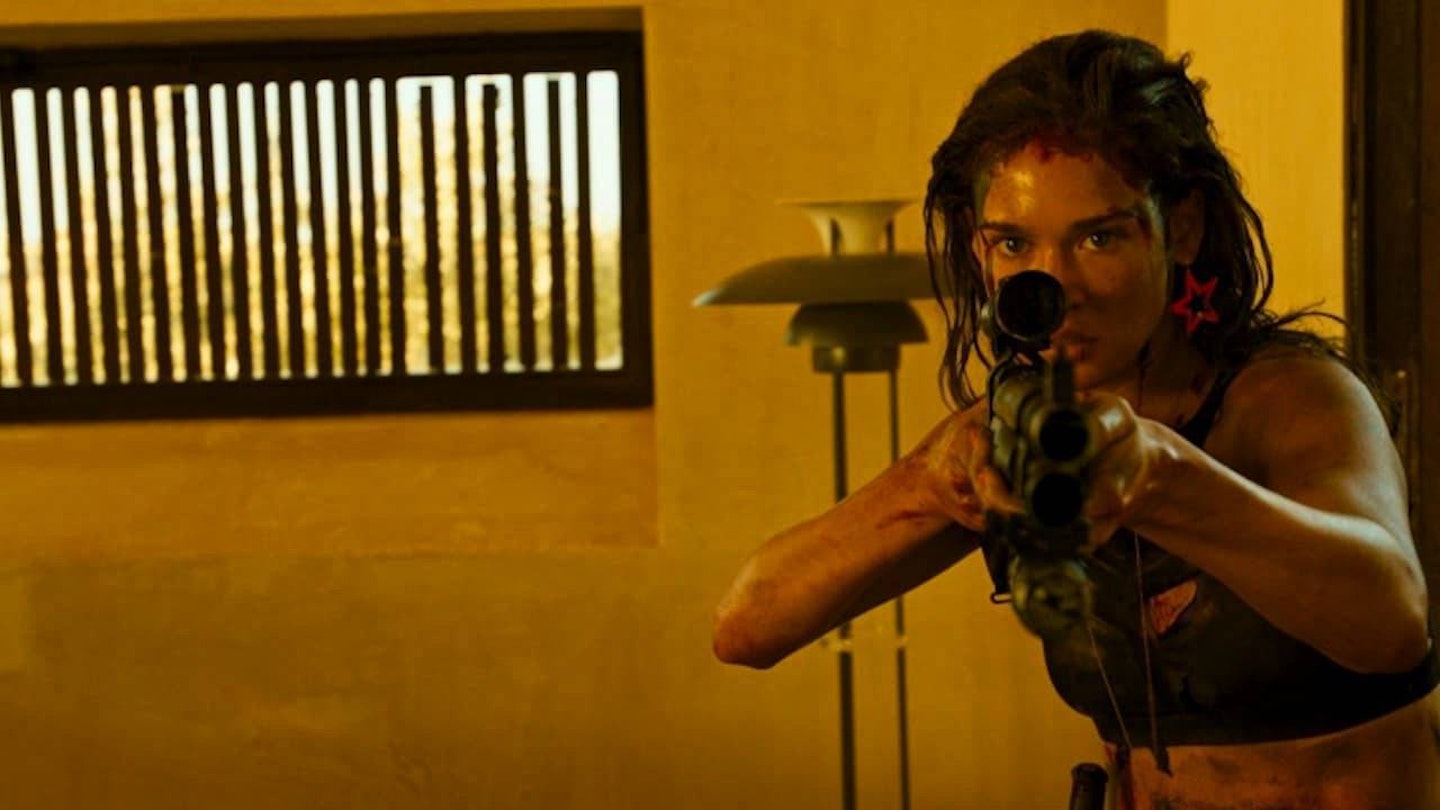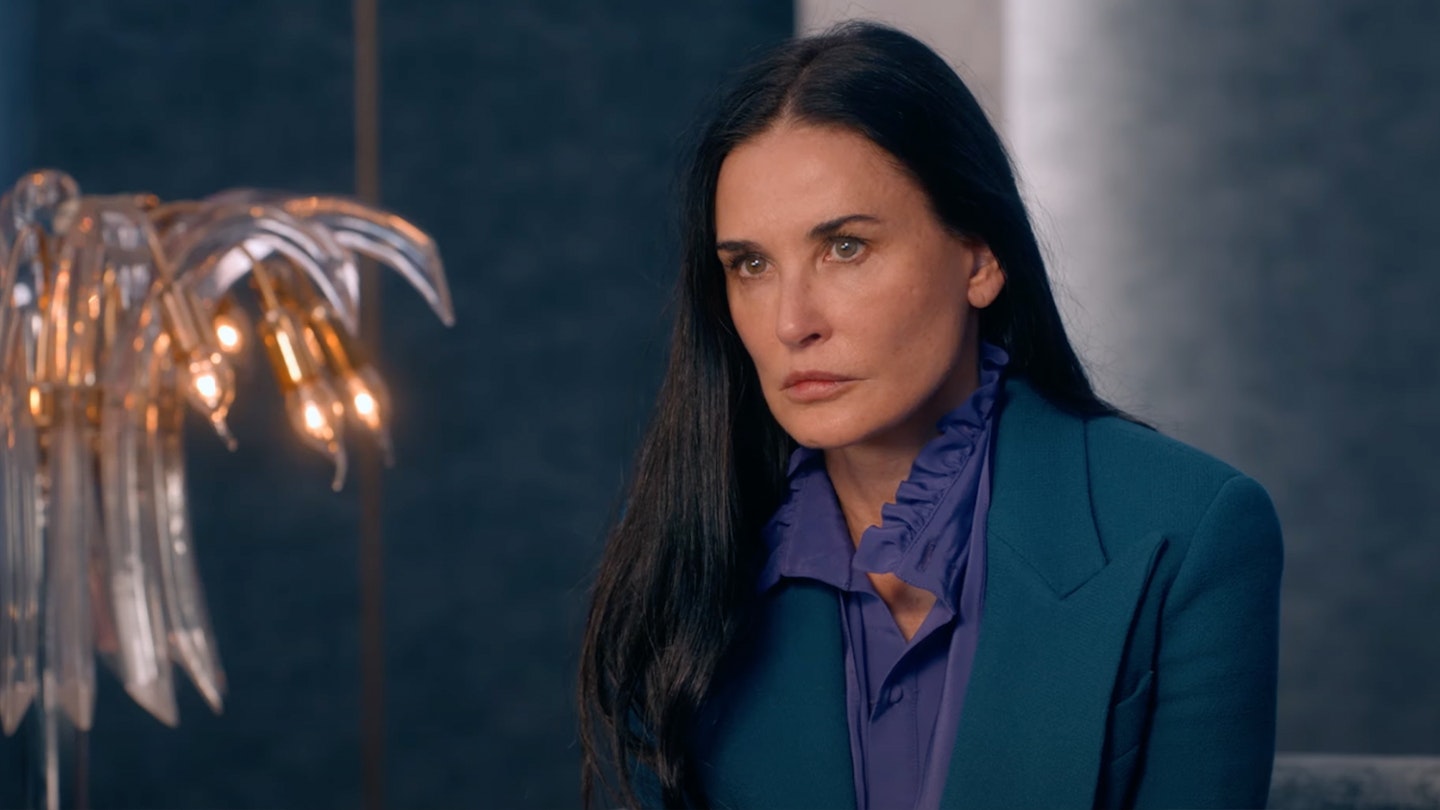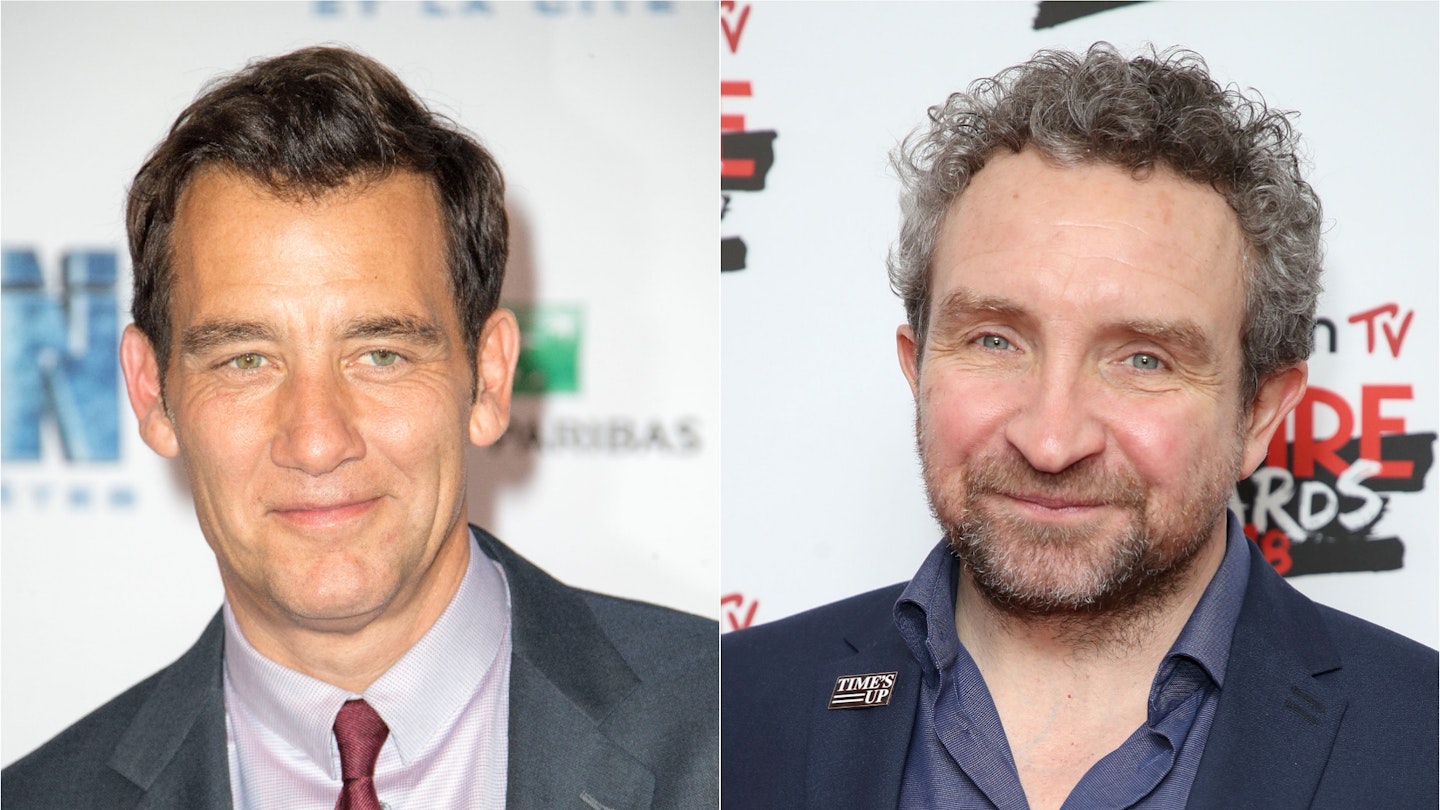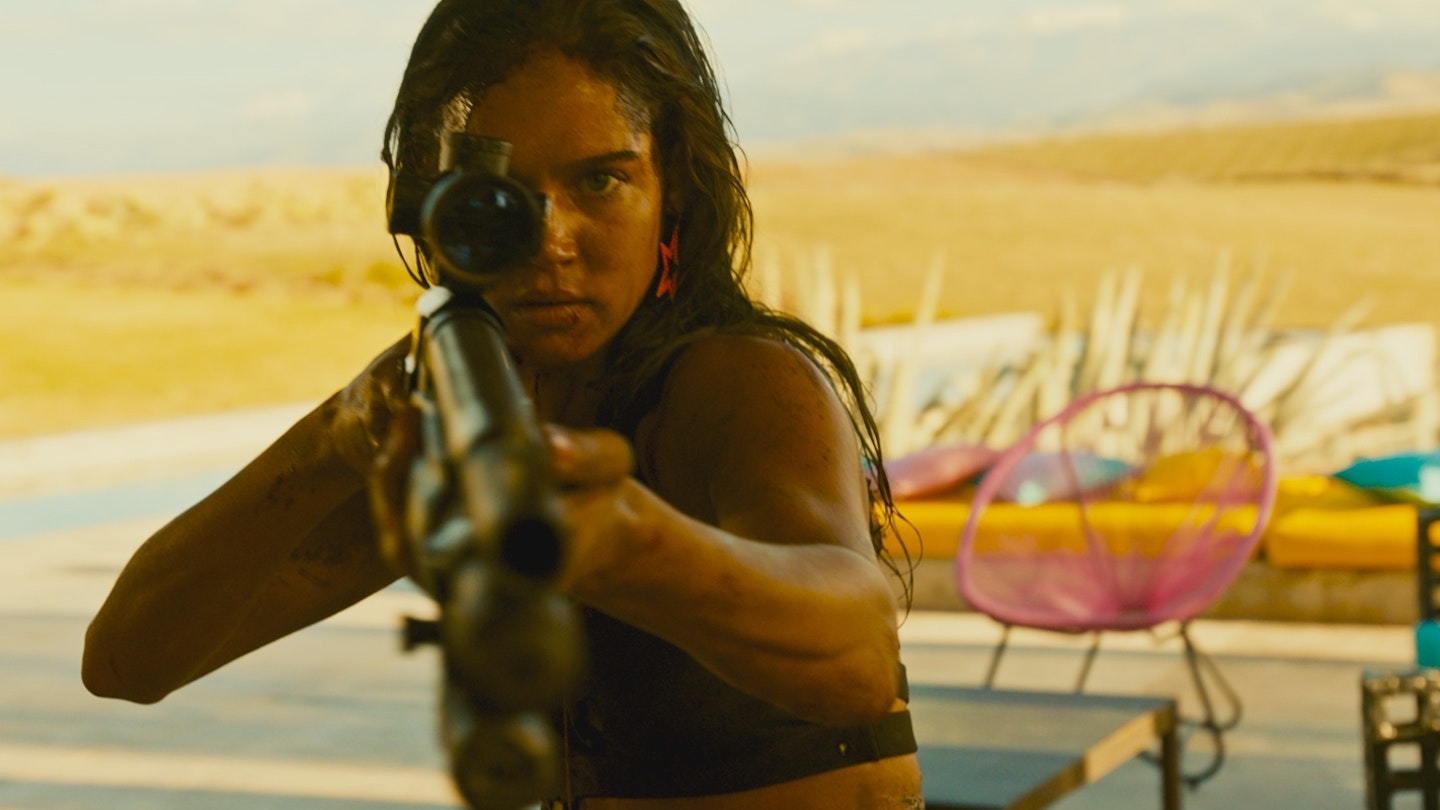This title, and set-up, suggest grimy exploitation and tired, sexist tropes. But first-time French director Coralie Fargeat has something more subtle in mind in this stylishly shot and seriously bloody take on the rape revenge, bringing a female sensibility to a genre that often leered. This has a mythic edge, in its visual references and heavy use of metaphor and fever dream, that suggests something supernatural even when nothing here is strictly impossible.
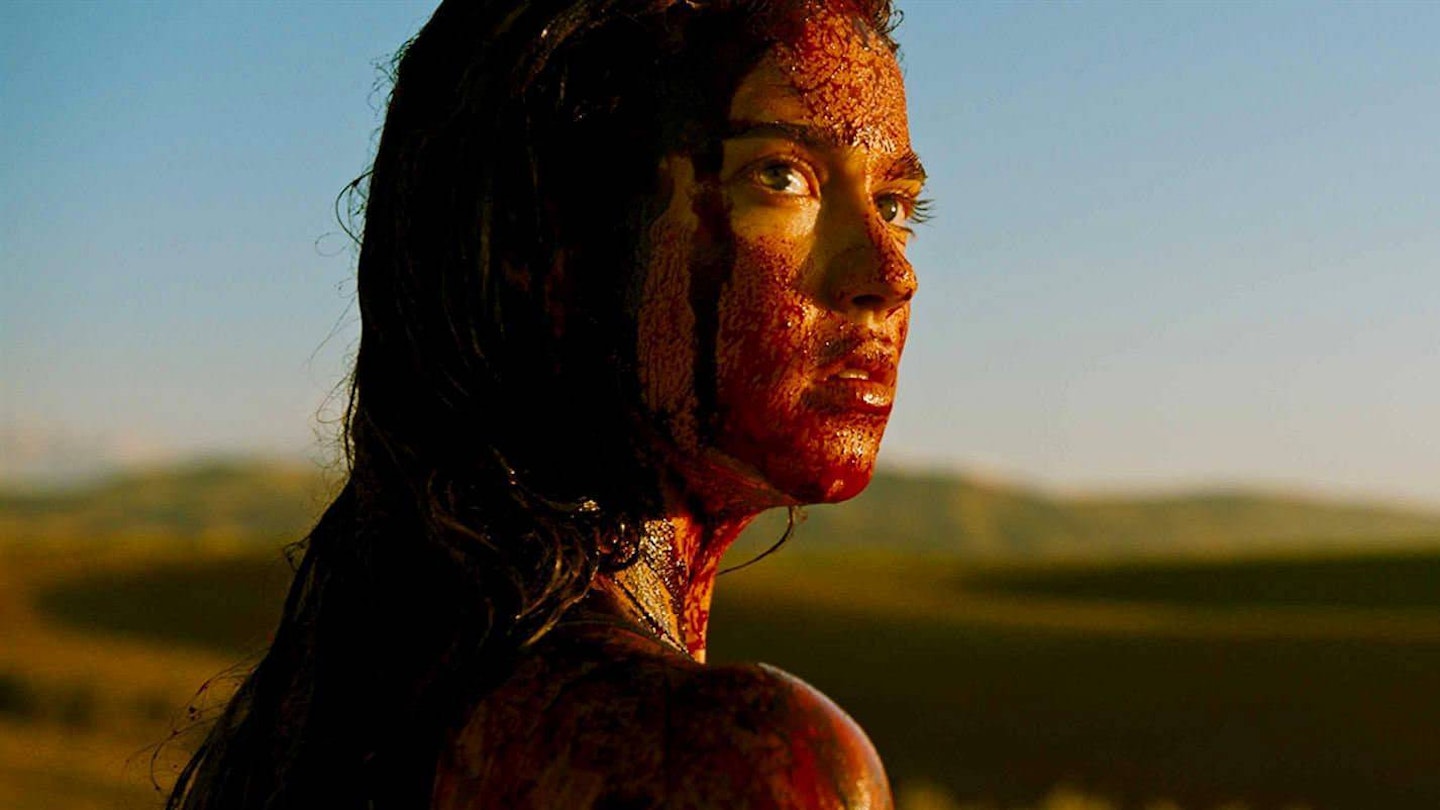
We’re introduced to Jen (Lutz, who is extraordinary) sucking on a Lolita lollypop and acting like a pure creature of straight male fantasy. She steps off a helicopter into a gorgeous desert villa, there to spend a couple of nights with her lover, Richard (Janssens). So far, so sex object: Jen is impossibly hot and entirely satisfied with that fact, and with her equally gorgeous boyfriend. But the rot at the heart of this apple is soon shown: Richard takes a call from his wife, and his heavily armed hunting buddies show up to play third wheel. One, Stan (Colombe), shows an unguessed-at capacity for violence when Richard leaves the house the next morning, and rapes Jen as Dimitri (Bouchède) ignores her screams. The consequences are devastating for all parties.
It would be a spoiler to say much more, but Fargeat finds interesting angles to grind the bones of a traditional revenge tale. There are scenes recalling tales of revenants and phoenixes, images with a Lynchian sense of dislocation and trippiness — especially in one segment that’s literally on peyote. Jen metamorphoses into a twisted take on Ursula Andress’ Honey Ryder, stripped to her undies and knife-belt but toting a huge rifle. But now as the camera spins around her body, it admires her scars and emphasises her body’s lean strength instead of its visual perfection.
Fargeat finds interesting angles to grind the bones of a traditional revenge tale.
Meanwhile the men, despite their formidable hunting skills, are steadily diminished. Stan’s weakness is visible whenever he is with Richard; his cowardice is emphasised repeatedly. The rapist is not the bogeyman here: the more terrifying are those who enable him, who tell his victim that it was her fault. Even Richard, for all his Mad Max biking leathers and Aaron Eckhart looks, is terrified of losing the cushy life he has built to the cries for justice of a mere girl. By the end of the film he has been as stripped and objectified as Jen ever was.
This is not a radically different rape revenge drama on the surface, and it is still, at times, as unpleasant a watch as any of its fellows. But Fargeat’s clear eye, direct moral stance and comfort with violence make it a punchier entry than most, and the style of Pierre Queffelean’s design and Rob’s score harks back to the ’70s greats without losing their modern edge. Even if you think you know where it’s going as its builds to a near-wordless finale (and you might be right), the moments of character detail are beautifully judged, and the gore surprisingly well splashed.
